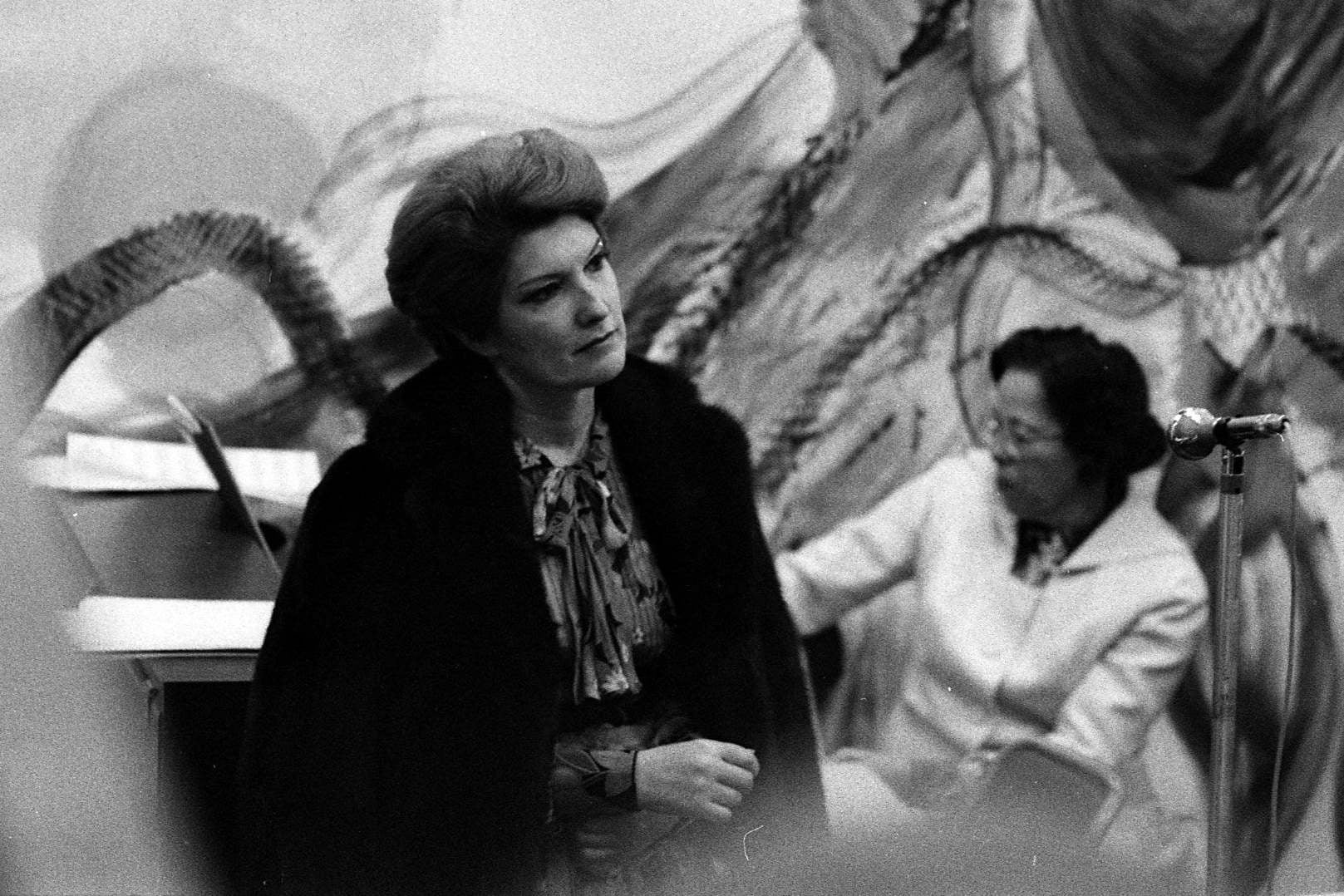Mady Mesplé: Leading voice of French opera
Although she was an aspiring pianist, her vocal prowess led her into a three-decade career as a classical singer

With a distinctly bright and agile voice, the soprano opera singer Mady Mesplé was one of the most recognised classical singers of the post-war period in France.
Mesplé, who has died aged 89, was an eclectic musician whose repertoire was evenly distributed between great classical opera performances, operettas and recital literature – some contemporary composers would even write their music with only her in mind. Although she was an aspiring and conservatory-trained pianist from a young age, her vocal prowess diverted her into a three-decade career as one of the most accomplished French operatic singers of the 20th century.
Born on 7 March 1931 in the southern city of Toulouse, Magdeleine Mesplé’s musical talent was encouraged from an early age. Her parents, who had met in a choir, started her on piano lessons from the age of four. Her mother was a secretary at a confectionery company and her father was an accountant.
Mesplé was offered a place in the conservatory of her native city of Toulouse to study piano, at the age of just seven. Decades later as a teacher in France’s top music schools, she said she was amazed at how “students nowadays have to work on music theory [a little over] an hour per day, when back in my day I had to study for six hours”.
When Mesplé turned 14, the promising student was offered a spot at the Paris conservatory to continue her piano studies. However, the opportunity was financially impossible for her two working parents – both also wary about the prospect of a career as a musician.
“My mother was afraid I would become a street entertainer,” she told the radio station France Musique in 2011. “To her, women were mostly supposed to get married and have children. And, at the time, a child going to study in another city really meant relocating the whole family – it would be perhaps less complicated these days.”
Undeterred, armed with impeccable technique and countless hours of music training under her belt, Mesplé decided to earn a living – and continue to pay for her classes – by working at the local ballroom orchestra. As a ballroom musician, she was often working with players from a variety of musical genres and backgrounds, switching from jazz to tango depending on the event.
It wasn’t long until her musical entourage, and particularly her teachers, began noticing her prodigious voice as she hummed over her piano, and soon encouraged her to train as a classical opera singer.
“The path was all mapped out for me. I don’t feel like I made a choice. I had a well-tuned voice, and that was a gift,” she recalled. “What can one do for or against this?” As grateful as she was about her career, Mesplé described this detour as a crushing realisation.
But she followed their advice and enrolled at the Toulouse conservatory to study singing, graduating four years later. Diploma in hand, she moved to Paris to continue singing lessons. Her former teacher at the conservatory, who happened to be married to the director of a Toulouse opera company, recommended her for an audition at the Opéra Royal in Liège, Belgium.
She went to that audition with no previous experience of performing on a professional stage and in 1953 she was cast as the title role of Delibes’s opera Lakmé – a role she played an estimated 145 times.
This performance would land Mesplé in a series of career-changing roles. She debuted at La Monnaie in Brussels in 1954, and the Opéra-Comique of Paris in 1956. Four years later she would take over a role from the Australian coloratura soprano Joan Sutherland in a production of Lucia di Lammermoor.
A highly coveted singer, Mesplé soon became an international star. She performed at Bolshoi Theatre in Moscow, the Royal Opera House in London, Teatro alla Scala in Milan, the Metropolitan Opera in New York and Teatro Colón in Buenos Aires.
As she became a more established figure in opera, the soprano began taking roles in contemporary works – smaller recitals and operettas – in the Sixties and Seventies, an unusual move for an established opera singer. These formats were more available to the wider public and the performances were often televised, increasing her popularity as a versatile musical figure in France.
Mesplé retired from opera in 1985 after three decades on the stage. Although she continued to sing professionally in smaller recitals and operettas, she turned to teaching in France’s most prestigious schools, such as the École Normale de Musique de Paris and the Conservatoire National Supérieur Musique et Danse in Lyon.
In 1996, Mesplé was diagnosed with Parkinson’s, which led her to completely abandon stage performances in 2001, aged 70. Mesplé continued to attend as many recitals and operas as she could, occasionally programming and promoting concerts.
Years later and motivated by her peers at the Association France Parkinson, she published an autobiography in which she recounted her career as well as her experience of being diagnosed and living with the disease. In her 2010 book, she also advocated for the creation of special facilities for those living with the disease. She went on to become an honorary patron of the association.
Mady Mesplé, born 7 March 1931, died 30 May 2020
Join our commenting forum
Join thought-provoking conversations, follow other Independent readers and see their replies
Comments